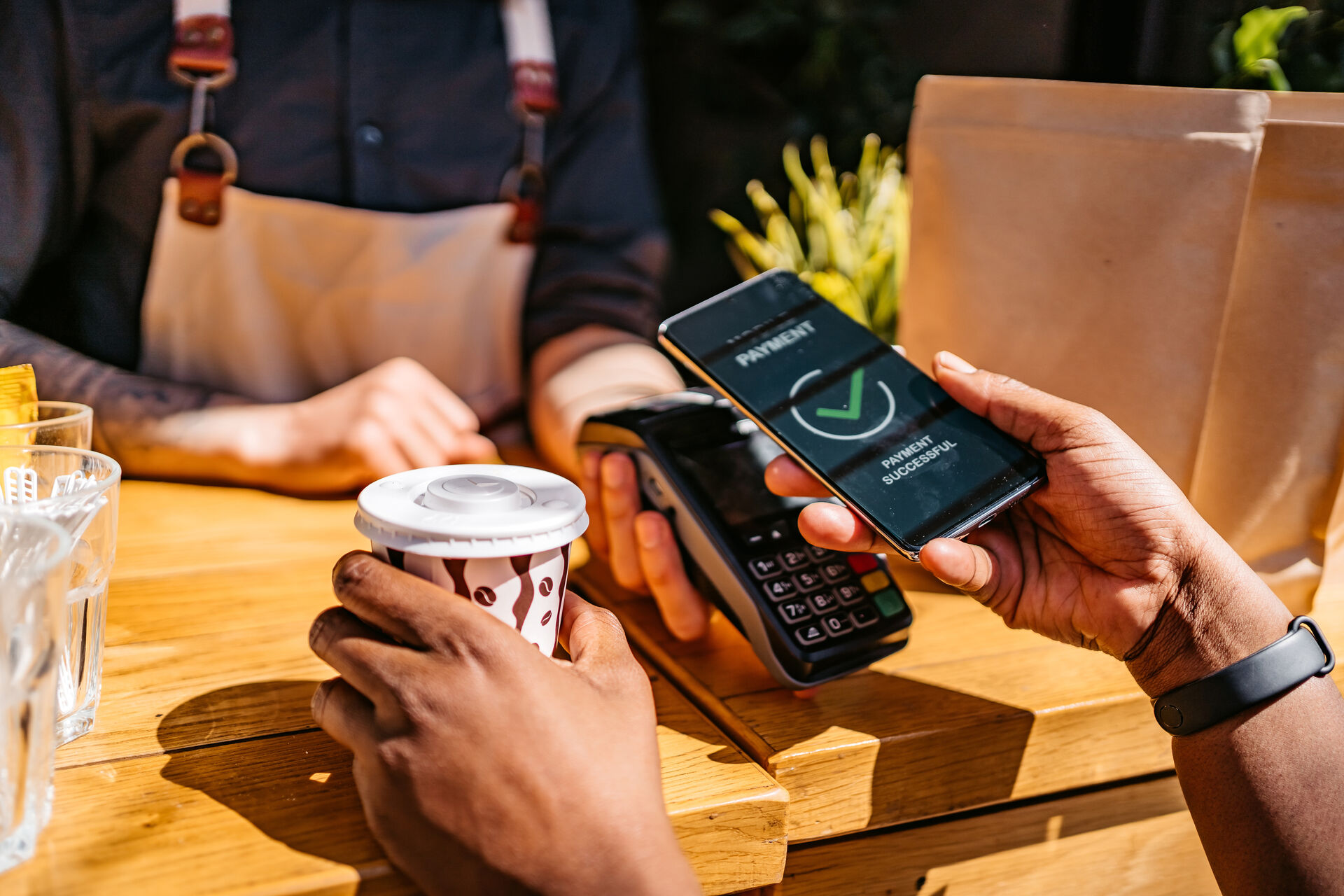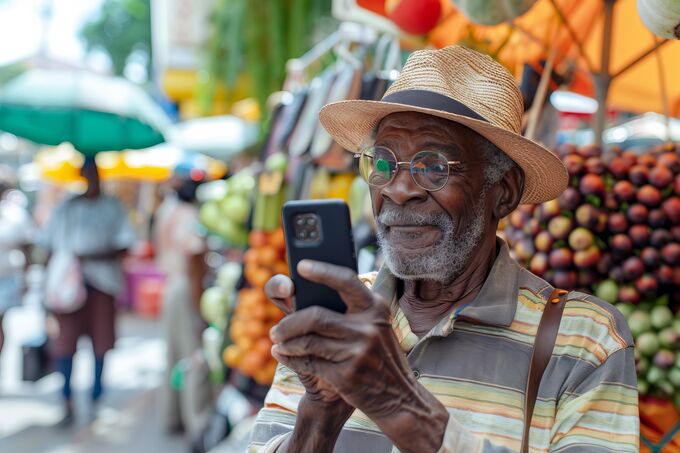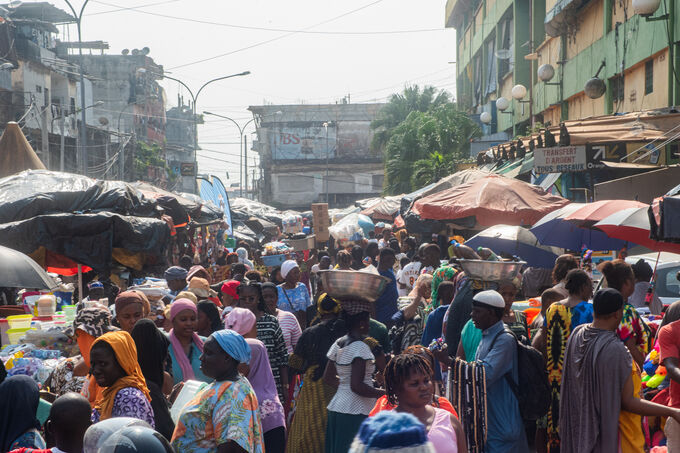
News
Accelerating Financial Inclusion in Africa: The Journey Toward Inclusive Instant Payment Systems
by Dr Robert Ochola, CEO AfricaNenda - 29 April 2025
Miriam wakes up early in her small village in rural Uganda, determined to make the most of her day. Her dreams are as vibrant as the fabrics she sews: to buy a second sewing machine, hire an assistant, and turn her small business into a reliable source of income for her family.
However, as one of Africa’s 400 million unbanked individuals, Miriam faces daily financial uncertainty. Without access to formal financial services, she stores her earnings in a tin box under her bed. This leaves her vulnerable to theft and damage, while making her income invisible to potential lenders. For millions like Miriam, financial exclusion stifles opportunities and limits their potential.
Imagine what Miriam could achieve with access to useful digital financial services like biometric payments (accounts), QR Codes, mobile banking, payments, savings, and credit? These tools could empower her to manage her finances more securely, grow her business, and build a better future for her family. This vision highlights the need for transformative financial infrastructure that goes beyond the current systems in place.
The Mobile Money Revolution: Progress, But Not Enough
In the early 2000s, Africa began a similar financial revolution with the advent of mobile money. Platforms like M-Pesa in Kenya and MTN Mobile Money in Uganda brought basic financial services to millions who had never stepped inside a bank. These innovations bridged gaps for the unbanked and offered a lifeline to those underserved by traditional banks due to high fees or geographic barriers. By 2021, 33% of adults in Africa had mobile money accounts, according to the Global Findex, and GSMA reported that Sub-Saharan Africa accounted for 65% of global mobile money transactions in 2023, totaling over $910 billion. Echoing the experience of 19th Century England, mobile money is motivating more adults to save using an account.
Despite this progress, mobile money has not yet reached everyone. Many people remain unconvinced that mobile money offers a better alternative to cash, while limited interoperability between mobile money providers and banks diminishes its value. Interoperability—the ability to transact seamlessly
across different financial platforms—is crucial, as digital payments often serve as a gateway to broader financial services like credit, insurance, and savings. Without inclusive systems, mobile money is only a partial solution for people like Miriam.
The Promise of Inclusive Instant Payment Systems
The next phase in Africa’s financial inclusion journey lies in building Inclusive Instant Payment Systems (IIPS). These systems go beyond basic Instant Payment Systems (IPS) by embedding inclusivity into their design. As highlighted in the State of Inclusive Instant Payment Systems (SIIPS) 2024 report, IIPS are defined by their accessibility, affordability, and interoperability.
IIPS function as essential infrastructure—like mobile networks or electricity—that empower everyone to participate in the formal financial system. By making digital payments universally available and affordable, they encourage more Africans to adopt financial services beyond basic payments. This could enable millions to open digital wallets, transact seamlessly, and access credit and savings.
Building IIPS requires collaboration among governments, financial institutions, and development organizations. Key priorities include:
•Infrastructure investments to connect rural areas.
•Regulatory reforms to promote interoperability and risk-based licensing for non-bank providers.
•Public education campaigns to build trust and improve financial literacy.

AfricaNenda Foundation and the Vision for Miriam’s Future
AfricaNenda, a foundation dedicated to advancing financial inclusion, is at the forefront of the continent’s journey toward universal financial access. Over the past few years, significant strides have been made to foster financial inclusion across Africa. Key achievements include partnerships with the African Union Commission (AUC), United Nations Economic Commission for Africa (UNECA), and ongoing work with stakeholders in Rwanda, Cabo Verde, Guinea, South Sudan, and the CEMAC region. These efforts have laid the groundwork for a more inclusive and interconnected financial ecosystem across the continent.
One transformative focus has been promoting interoperability between payment platforms. For instance, Ghana has developed payment systems to equip and connect mobile money providers and banks and thereby allow users to transact seamlessly. Coupled with advocacy for low transaction fees and public education campaigns to improve financial literacy, these initiatives are ensuring that digital financial services become accessible and affordable for all, especially for underserved groups like women, youth, and rural communities.
Looking to the future for AfricaNenda and other partners within the continent’s payment ecosystem, the next phase is ambitious: to reaching an additional 300 million unbanked individuals by 2030. Achieving this goal demands unparalleled collaboration, cohesion, and collective commitment. The critical success factors driving this agenda include scaling technical support, driving innovation in payment systems, strengthening regional integration, mobilizing project funding, and empowering local financial service providers. Together, these factors contribute to a robust framework that ensures no one is left behind and unlocks economic opportunities for millions of Africans.
For Miriam and others like her, this vision translates into real possibilities. With access to digital wallets linked to interoperable payment systems, she can expand her business, access credit, and achieve
financial stability. Her story reflects a brighter future where inclusive financial systems enable individuals and communities to thrive and contribute to the continent’s overall growth.
By prioritizing inclusion and innovation, these efforts mark a turning point in Africa’s financial journey—one where transformative systems not only empower individuals but also build a foundation for sustainable economic growth.
Building an Economically Transformed Africa
Miriam’s story is just one example of what financial inclusion can achieve. As Africa transforms its payments landscape, it’s worth reflecting on the words of Thomas Sankara, the visionary leader of Burkina Faso:
“Nous devons produire ce que nous consommons et consommer ce que nous produisons. Seule la valeur ajoutée locale peut libérer économiquement l’Afrique.”
“We must produce what we consume and consume what we produce. Only local value addition can economically liberate Africa.”
Sankara’s vision of economic self-reliance resonates in the context of financial inclusion. By building IIPS, Africa is not merely creating payment systems. It is unlocking the potential of its people, enabling them to save, invest, and drive local economies. Financial inclusion is not just a goal; it is the foundation for economic transformation.
This journey is about more than systems or numbers—it is about people like Miriam whose lives can be transformed by inclusive financial services. Africa can lead a new chapter in global financial inclusion. This is Africa’s moment, and it is filled with hope, innovation, and boundless potential.


